
Selected reviews about elderly care communities
Selected reviews about elderly care communities offer valuable insights into the experiences of residents and their families. These reviews can highlight the strengths and weaknesses of different communities, helping you make an informed decision when choosing the right care for your loved one.
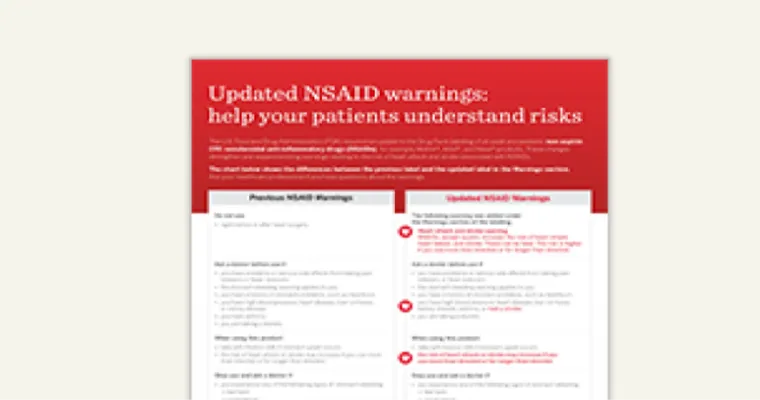
Warning on NSAIDS.
Nonsteroidal anti-inflammatory drugs (NSAIDs) can cause serious side effects, including gastrointestinal bleeding, kidney damage, and increased risk of heart attack or stroke. Users should consult healthcare professionals before use, especially individuals with preexisting conditions or those taking other medications. Always adhere to recommended dosages to minimize risks.

Suggestions on how to research the best knee replacement surgeon?
To find the best knee replacement surgeon, consider seeking referrals from your primary care physician and friends. Research online reviews and check the surgeon's credentials, experience, and specialization. Schedule consultations to assess their communication style and approach. Additionally, inquire about their success rates and patient outcomes for informed decision-making.

More Seniors Going Under The Knife to Get New Knees
An increasing number of seniors are opting for knee replacement surgeries to alleviate chronic pain and enhance mobility. Advancements in medical technology and techniques, along with a growing emphasis on active lifestyles, are encouraging older adults to seek surgical solutions, ultimately improving their quality of life and independence.

Arthritis Top Tips: Medications for Joint Pain
Arthritis management often involves medications to alleviate joint pain. Common options include nonsteroidal anti-inflammatory drugs, corticosteroids, and disease-modifying antirheumatic drugs. It's essential to consult a healthcare professional to determine the most suitable treatment plan, considering potential side effects and interactions, while also incorporating lifestyle changes for optimal relief.
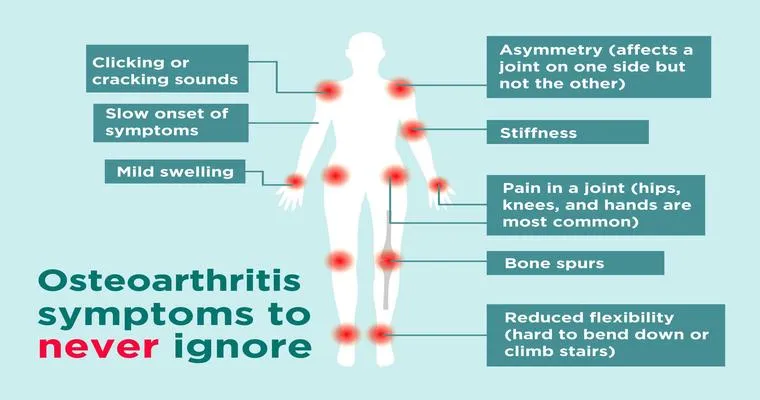
What is Arthritis and Why Does it Hurt So Much?
Arthritis is a group of inflammatory joint diseases that cause pain, swelling, and stiffness. The immune system attacks joint tissues, leading to inflammation and damage. This results in discomfort and limitations in movement, making everyday activities challenging for those affected by the condition.
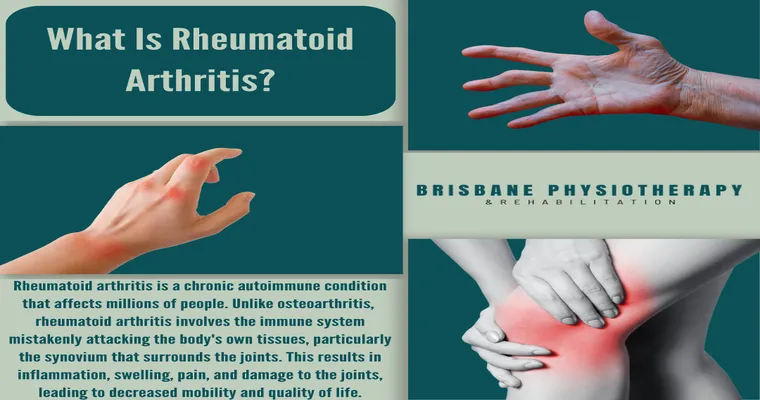
Rheumatoid Arthritis: Causes, Symptoms and Treatments
Rheumatoid arthritis is an autoimmune disorder that primarily affects the joints, causing pain, swelling, and stiffness. Its exact cause is unknown, but genetic and environmental factors may contribute. Treatment options include medications, physical therapy, and lifestyle changes to manage symptoms and improve quality of life. Early intervention is crucial for better outcomes.
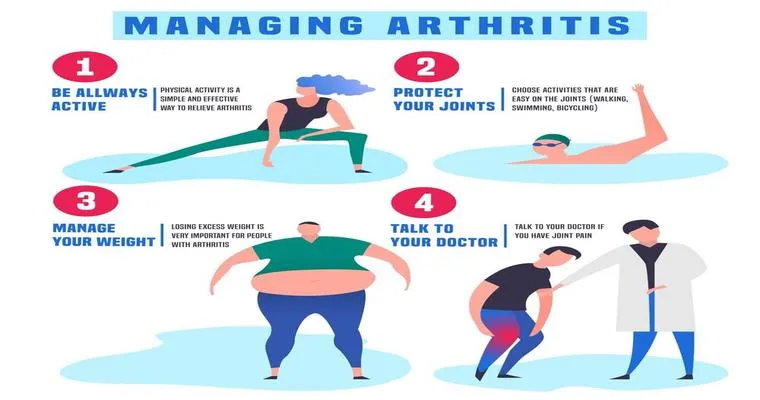
Treating Arthritis: How to Stop Joint Pain
Treating arthritis involves a combination of lifestyle changes, medication, and physical therapy to alleviate joint pain and improve mobility. Maintaining a healthy weight, engaging in regular low-impact exercises, and using heat or cold therapy can also help. Consultation with a healthcare provider is essential for tailored treatment options and pain management strategies.

8 Tips for Exercising With Arthritis
Exercising with arthritis can enhance mobility and reduce pain. Focus on low-impact activities like swimming or cycling, incorporate flexibility and strength training, and listen to your body to avoid overexertion. Regular stretching, warm-ups, and cool-downs are essential, as is consulting with a healthcare professional for personalized guidance.
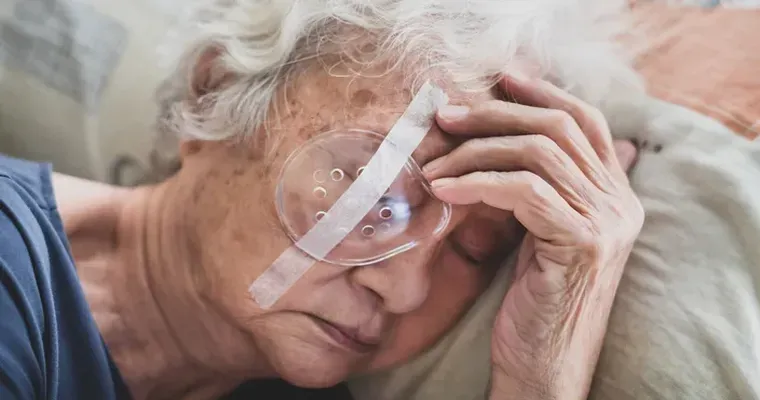
Anyone have experience with cataract surgery and an allergy to antibiotics?
Cataract surgery is a common procedure, but individuals with antibiotic allergies may have concerns about postoperative care. It's essential to discuss any allergies with the surgeon beforehand. Alternative medications or treatments can be considered to ensure a safe recovery while managing eye health effectively. Consulting with a healthcare professional is crucial.

How do I get meds for my mom who is in bed and has had many UTI s?
To help your mom with her recurrent UTIs, consult her healthcare provider for an appropriate treatment plan. They may prescribe antibiotics or recommend preventive measures. Ensure she stays hydrated and practices good hygiene. If needed, arrange for a home health nurse to assist with medication management and follow-up care.

Mom's repeated mystery illness... Anyone ever experience something similar?
Mom has been struggling with a recurring mystery illness that leaves her fatigued and in pain. Despite numerous doctors' visits and tests, no clear diagnosis has emerged. This ongoing uncertainty is emotionally draining for her and the family. Has anyone else faced a similar situation with a loved one?

My elderly mother has recurrent UTIs and is a bear to deal with. Is there anything that can be done?
Caring for an elderly mother with recurrent urinary tract infections can be challenging. Exploring lifestyle changes, proper hydration, and dietary adjustments may help reduce occurrences. Consulting a healthcare professional for appropriate medications or preventive strategies is essential to manage her condition effectively and improve her overall well-being.

86-year-old Dad, 6 months post lower leg amputation. Any insight or advice?
An 86-year-old man is adapting to life six months after a lower leg amputation. It's crucial to focus on physical rehabilitation, emotional support, and maintaining social connections. Engaging in activities he enjoys and encouraging independence can enhance his quality of life while fostering resilience during this challenging time.

Any advice on antibiotic use when moving towards end-of-life medication?
When considering antibiotic use at the end of life, focus on comfort rather than aggressive treatment. Discuss goals of care with healthcare providers, weighing potential benefits against side effects. Prioritize quality of life, and consider palliative options that alleviate symptoms without prolonging suffering. Communication with loved ones is essential.

Baker Acted Mother on Christmas, what happens now?
A mother was involuntarily hospitalized under the Baker Act during the holiday season, raising concerns about her well-being and the impact on her family. As she receives mental health care, her loved ones grapple with uncertainty, navigating the challenges of support and understanding while hoping for her recovery and reunion.

Is it normal she's so negative?
Experiencing negativity in someone can be concerning, especially if it affects their relationships and overall well-being. This behavior may stem from various factors, including stress, past experiences, or mental health issues. Understanding the root causes can help in addressing the negativity and fostering a more positive environment.

Husband with dementia is starting to have angry/furious outbursts, any suggestions?
Dealing with a husband who has dementia and exhibits angry outbursts can be challenging. It's important to remain calm and patient, validate his feelings, and try to identify triggers. Creating a structured routine, ensuring he feels safe, and seeking support from professionals or support groups can also help manage these emotions.

What options are left when the long term care facilities turn your loved one down due to behavior?
When a long-term care facility declines admission due to behavioral issues, families can explore alternative options like specialized memory care units, in-home care services with trained professionals, or seeking assistance from behavioral health specialists. Consulting with social workers and advocacy groups can also provide guidance and resources tailored to specific needs.

NH refusing patient due to antipsychotic used off label. Is this standard practice?
A nursing home declined to admit a patient due to their use of an off-label antipsychotic medication. This practice raises ethical questions, as off-label prescribing can be common in medicine. However, facilities may have policies regarding such medications, prioritizing patient safety and regulatory compliance in their decision-making processes.

Mother in retirement home at 96 years old. Any advice on managing her stress?
At 96, your mother in a retirement home may experience stress from changes in her environment and routine. Encourage her to engage in social activities, maintain a daily schedule, and practice mindfulness. Regular visits and open communication can also provide comfort and reassurance, helping her feel connected and valued.
Page 125 of 134